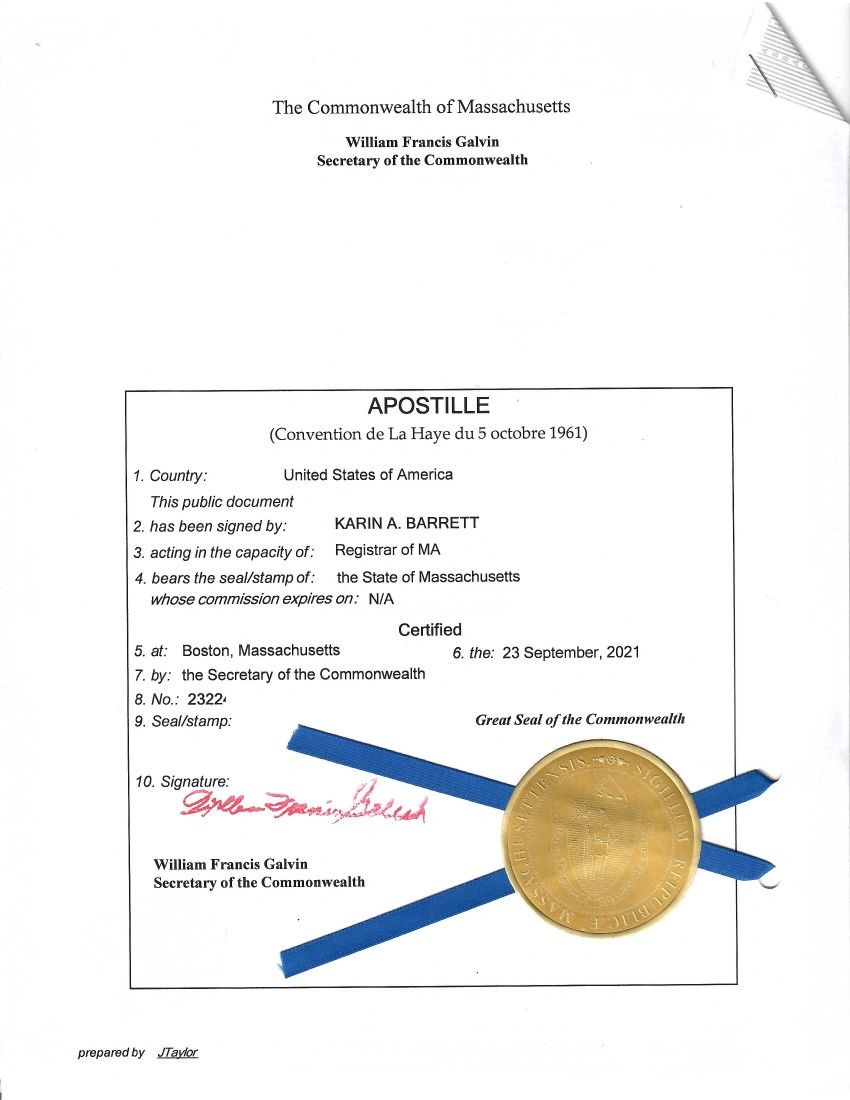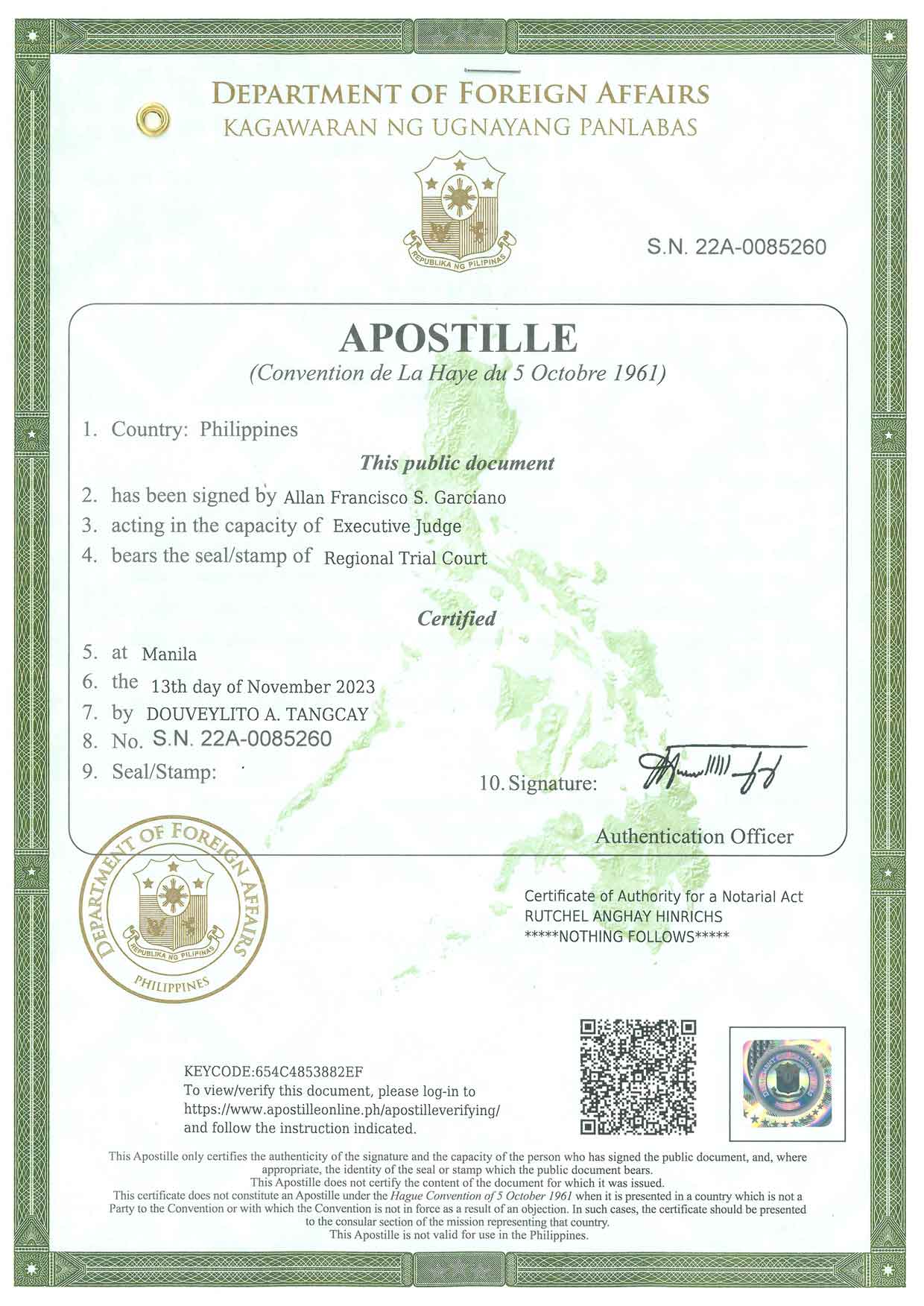Apostille Houston Solutions-- Legalize Your Papers effortlessly
Apostille Houston Solutions-- Legalize Your Papers effortlessly
Blog Article
Understanding the Apostille Process: A Comprehensive Guide to International Document Verification
Navigating the intricate landscape of international document authentication can be discouraging without a clear understanding of the apostille procedure. What specifically specifies an apostille, and why is it so vital for papers destined for Hague Convention countries?
What Is an Apostille?
An apostille is an official certification that validates the credibility of a file for use in another nation. This qualification, provided by an assigned authority in the country where the document stemmed, makes certain that the paper is acknowledged as valid and legitimate in the global sector. The process of obtaining an apostille entails numerous steps, consisting of the confirmation of the file's signatures, seals, and stamps by ideal governmental bodies.
The apostille acts as a globally recognized kind of authentication, enabled by the Hague Convention of 1961. This treaty, formally recognized as the Hague Convention Eliminating the Demand of Legalisation for Foreign Public Files, systematizes the procedure of file accreditation amongst member nations. The apostille itself is a standardized certificate that has particular information, such as the releasing authority, the native land, and the day of issuance.
It is essential to keep in mind that not all files are qualified for an apostille. Usually, public documents like copyright, marital relationship licenses, court orders, and instructional diplomas get this qualification. Exclusive records, such as contracts and agreements, might call for registration and added actions to qualify.
Significance of Apostille
Comprehending what an apostille is sets the stage for appreciating its relevance in global ventures. houston tx apostille. An apostille, essentially a type of qualification released by a marked authority, verifies the authenticity of a file for usage in international nations that are signatures to the Hague Apostille Convention. This standard process removes the need for more legalisation by embassies or consulates, consequently enhancing worldwide deals
The importance of an apostille can not be overemphasized. It ensures the trustworthiness and approval of necessary records-- such as birth certifications, marriage licenses, and instructional diplomas-- across boundaries. For services, it assists in the smooth conduct of international profession, mergings, and procurements by giving a trusted technique of record verification. This lowers governmental obstacles, conserving both time and sources.
Furthermore, an apostille improves lawful safety and security and conformity. Federal governments and institutions can confidently count on the authenticity of papers bearing an apostille, minimizing the risk of scams and misstatement. Hence, the apostille acts as a critical device in advertising international participation and count on. Its role in fostering reliable and safe global transactions highlights its vital value in today's interconnected world.
Files That Require Apostille
When involving in international purchases or legal issues, certain files usually necessitate the verification supplied by an apostille. This ensures their recognition and acceptance in countries that are signatories to the Hague Apostille Convention. Commonly, individual files such as birth certifications, marital relationship certificates, and fatality certifications call for an apostille, particularly when they are used for procedures like migration, marriage abroad, or international probate matters.
Educational files are an additional group regularly requiring apostilles. Diplomas, transcripts, and academic documents frequently need this verification for objectives such as seeking more education, employment, or professional licensing in a foreign country (houston tx apostille). This step assures that the papers are recognized as legit and legitimate
Lawful files, including powers of lawyer, testimonies, and court orders, likewise frequently necessitate apostilles. Company records such as certificates of unification, bylaws, and business contracts may call for an apostille to facilitate worldwide profession, establish international branches, or participate in cross-border lawful proceedings.
Actions to Get an Apostille

Getting an apostille includes a multi-step procedure that makes certain the credibility and approval of your papers in foreign countries. The initial action is identifying which files need an apostille. houston tx apostille. Common records her latest blog consist of copyright, marriage licenses, academic records, and business files
When identified, the paper needs to be licensed by the proper providing authority. After accreditation, the paper must be submitted to the assigned Competent Authority in the record's country of origin.
The submission process normally calls for a completed application, the original paper, and a fee. Some jurisdictions might supply the alternative of expedited handling for an extra cost. Upon effective confirmation, the Competent Authority will certainly fasten the apostille certification to the record, thereby validating its credibility.
Common Obstacles and Solutions
Navigating the apostille procedure can offer several typical obstacles that, if not appropriately addressed, may postpone or make complex file verification. One constant issue is the submission of wrong or incomplete papers. Each nation has details requirements for the sorts of papers that can be apostilled, and any kind my company of inconsistency from these can cause denial. Ensuring that all files are precise and full prior to submission is critical.
Another usual obstacle is recognizing the diverse handling times. Handling times can vary substantially in between this post nations and even between different areas within the very same nation. It is vital to make up these variants when preparing the apostille process to avoid unexpected hold-ups.
Furthermore, language barriers can position significant obstacles. Records in an international language commonly need certified translations, and any type of inaccuracies in translation can lead to more issues. Engaging a professional translation solution can alleviate this danger.

Conclusion
Understanding the apostille process dramatically boosts the effectiveness of international record verification. By comprehending the need of recognizing and accrediting required records, and navigating the submission to the Competent Authority, the procedure ends up being more convenient. Understanding of common obstacles, such as incomplete entries and language barriers, further help in avoiding potential hold-ups. Ensuring records are correctly apostilled promotes their acceptance in Hague Convention signatory nations, thus sustaining smooth worldwide legal and administrative procedures.
Report this page